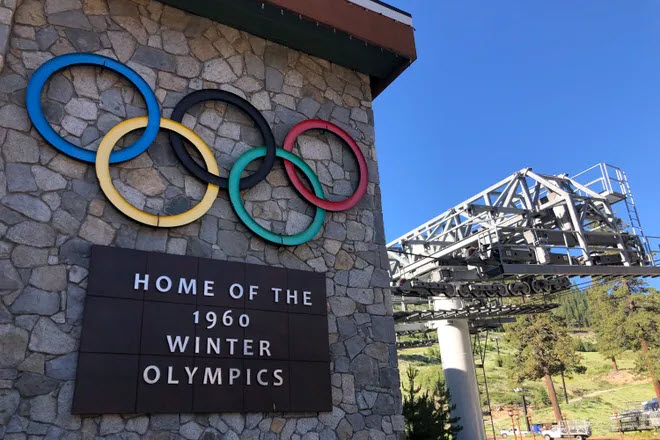

Special to the Vanguard
Sacramento, CA – If a bill to prohibit the use of the word “squaw” passes the legislature, California will have to rename dozens of locations by January 1, 2024.
The bill was introduced by Assemblymembers James C. Ramos (D-Highland), the first California Native American elected to the state legislature and Cristina Garcia (D-Bell Gardens), chair of the California Legislative Women’s Caucus.
“AB 2022 would ban the use of the S-word and establish a process for renaming locations with that offensive racial and sexist term which began as derogatory word used against Native  American women. It is an idiom that came into use during the westward expansion of America, and it is not a tribal word. For decades, Native Americans have argued against the designation’s use because behind that expression is the disparagement of Native women that contributes to the crisis of missing and murdered people in our community,” Ramos stated.
American women. It is an idiom that came into use during the westward expansion of America, and it is not a tribal word. For decades, Native Americans have argued against the designation’s use because behind that expression is the disparagement of Native women that contributes to the crisis of missing and murdered people in our community,” Ramos stated.
Ramos added that more than 100 places in California contain the S-word. The United States Department of the Interior has ordered the term “erased from the National landscape and forever replaced” on the almost 700 sites using the name on federal lands. Montana, Oregon, Maine and Minnesota have already banned the word’s use.
Garcia commented, “The sad reality is that this term has been used for generations and normalized, even though it is a misogynistic and racist term rooted in the oppression and belittling of Indigenous women. AB 2022 begins to correct an ugly and painful part of our history by removing it from California’s landmarks; it’s the least we can do to help our indigenous women heal.”
AB 2022 defines a geographic feature as any location or publicly owned structure in the state such as navigable water, parks, local roads, bridges and publicly owned buildings. A place is defined in the proposal as a natural geographic feature or street, alley, or other road within the jurisdiction of the state or political subdivision of the state.
State and local government bodies shall identify geographic features and place names within their jurisdictions and report those locations or features to the California Advisory Committee on Geographic Names. The Committee would be charged with working with those bodies and the Native American Heritage Commission to recommend replacement names.
AB 2022 is sponsored by the American Civil Liberties Union CA.

https://em-ui.constantcontact.com/em-ui/em/page/em-ui/email#






Perhaps it is also time to remove the I-word (“Indian”) from place names, general use in the lexicon… it was a mis-nomer (early European explorers thought they had reached India when they reached the Americas), and was often used as an epithet, derogatory speech, including “indian giver”, “the only good indian is a dead indian”, etc.
This legislation should go much farther… now is the time! [And the IOC should no longer refer to the location of the 1960 Winter Olympics, and any existing medals bearing the S-word, from that Olymics, should be demanded to be returned, world-wide, to set an example…]
Just like after the N-word (the one with two “g”‘s), the word Negro was also banned as far as place names… i.e. ‘Negro Bar’, on the American River…
As I pointed out here before, the hills east of Guinda, today the “Guinda Hills” on maps, were once known in the Capay Valley as “N****r Heaven” because the agricultural workers who migrated there from the south lived in the ‘them thar’ hills. This was on U.S.G.S. maps well into the 1900s!
I’ve read that the S-word is offensive, and others arguing that it really isn’t. I think we can all agree the name change in the Capay Valley was necessary. I’m never sure who the judges are in deciding what is offensive to a people, but I’m inclined to believe it’s time to omit S place names. S Valley (hmmm . . . that conjures up entirely different images), their mistake was renaming it something stupid and forgettable (whatever it is, I was not impressed).
Also, seemed odd another town near Fresno has resisted and refused to rename their S town. Surprised that wasn’t mentioned in the article.
Also, why can we write out of the S word, but cannot write out or say the N word, even when discussing it’s elimination?
You, my friend are cancelled.
By the way, there’s another “N” word still in use, here:
http://www.parks.ca.gov/?page_id=27866
Looks like they’re working on changing it.
Now, if we can just stop calling white women “Karen”.
Somehow, there’s never really been a sufficiently-insulting word for all white people.
It’s the “C” word, also known as an “S” word.
Cracker? No, that never really did it. Nor did the “H” word.
Not sure why. Nor did “white boy”, which was periodically attempted as an insult.
In any case, not a “trigger” for me.
Plenty of other examples of REAL incidents, though.
Of course, there’s some terms that are offensive to particular groups within the broader “white” category. Or at least, they were considered offensive. (Usually referred to by other “white” people, from what I recall.)
I’m now recalling Archie Bunker (e.g., in regard to his son-in-law), among other examples. And no, I’m not referring to the “M” word (Meathead).